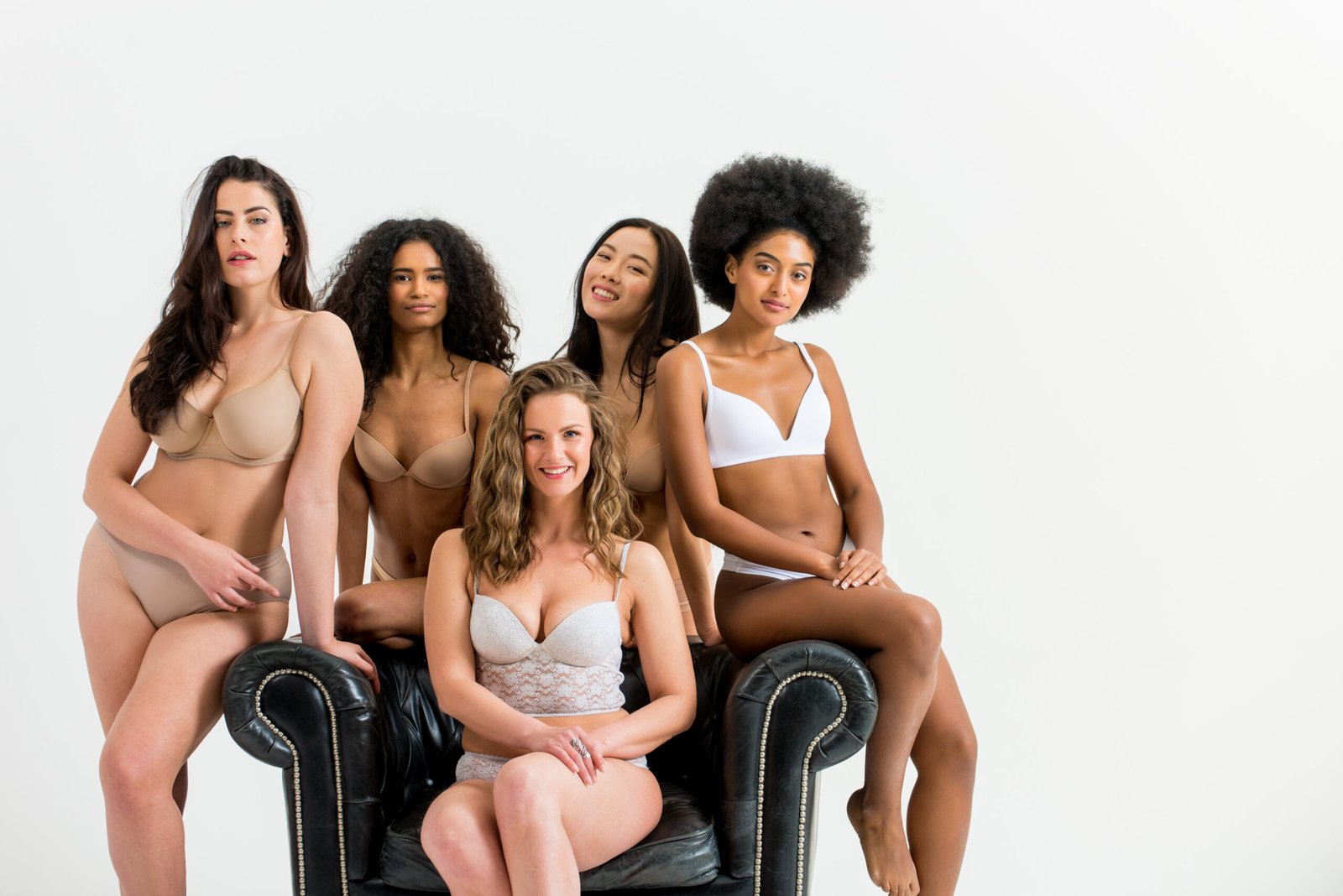The fascination with virginity is a phenomenon that has permeated societies and cultures across the globe for centuries. This preoccupation is not merely a contemporary issue but has deep historical and cultural roots. Historically, virginity has been associated with purity, honor, and moral integrity. Many ancient civilizations, including the Greeks, Romans, and Egyptians, placed a high value on virginity, often intertwining it with religious and cultural rituals. For instance, in ancient Rome, the Vestal Virgins were revered priestesses who were expected to maintain their virginity as a symbol of their sacred duties.
In many societies, the concept of virginity is often closely linked to gender, with a particular emphasis on female virginity. This gendered perspective has been perpetuated through various cultural narratives, religious doctrines, and social expectations. In some cultures, the preservation of a woman’s virginity until marriage is regarded as a reflection of familial honor and social status. This has led to practices such as chastity belts in medieval Europe and virginity testing in certain contemporary societies.
The obsession with virginity also manifests in the way it is romanticized and idealized in literature, media, and popular culture. Fairy tales, classical literature, and modern films often depict virginal characters as paragons of virtue and innocence. This romanticization can be observed in diverse cultures, from the purity ideal in Western narratives to the veneration of untouched beauty in Eastern traditions. Such portrayals contribute to societal pressure on individuals, particularly women, to conform to these idealized standards.
Furthermore, the medicalization and commercialization of virginity in modern times have added another layer to this obsession. Products and procedures that claim to restore or verify virginity, such as hymenoplasty, highlight the ongoing commodification of this concept. These practices underscore the persisting societal emphasis on virginity as a marker of value and desirability.
Understanding the multifaceted nature of the obsession with virginity requires a nuanced exploration of its historical, cultural, and social dimensions. This blog post aims to delve deeper into these aspects, examining the underlying factors that continue to fuel this enduring fascination.
Historical Perspectives on Virginity
The concept of virginity has held significant weight throughout various historical periods and cultures, often linked to notions of purity, morality, and social status. In ancient civilizations, virginity was frequently associated with divine favor and societal order. For instance, in Ancient Greece, the goddess Athena was revered as a perpetual virgin, symbolizing wisdom and strategic warfare. Similarly, the Vestal Virgins of Rome were considered sacred, entrusted with maintaining the sacred fire of Vesta, the goddess of hearth and home. Their virginity was seen as a vital component of their religious duty, directly tied to the well-being of Rome itself.
During medieval times, virginity continued to be a symbol of purity and morality, but it also began to take on more complex social implications. In feudal Europe, a woman’s virginity before marriage was regarded as a marker of her family’s honor and her own moral integrity. The Virgin Mary became an idealized figure in Christian theology, embodying purity and divine grace, further reinforcing the value placed on virginity. This period saw virginity becoming a litmus test for female virtue, with severe social and sometimes legal consequences for those who did not conform to these expectations.
In many non-Western cultures, virginity has also played a crucial role in social and familial structures. In certain African and Asian societies, virginity before marriage has been traditionally prized, often tied to bride price or dowry arrangements. For example, in parts of India, the concept of “kanyadaan” or the giving away of a virgin daughter is a sacred ritual in Hindu weddings, signifying purity and familial honor.
As societies evolved, so too did the concept of virginity. In the Renaissance period, the focus began to shift slightly with the emergence of more individualistic views on sexuality and morality. Yet, the underlying themes of purity and social status remained prevalent. Understanding these historical perspectives provides crucial context for examining contemporary attitudes towards virginity, revealing a complex tapestry of cultural, religious, and social influences that continue to shape perceptions today.
Religious Influences
The concept of virginity holds significant value across various major world religions, profoundly shaping societal attitudes and cultural norms. In Christianity, the emphasis on virginity can be traced back to biblical texts and religious doctrines. The Virgin Mary, revered as the mother of Jesus Christ, epitomizes purity and divine favor, setting a precedent for the veneration of virginity in Christian theology. Various passages in the Bible, such as those in the New Testament, underscore the virtue of chastity and the sanctity of virginity, influencing Christian communities to uphold these ideals.
Similarly, in Islam, virginity is highly regarded, particularly within the context of marriage. The Quran and Hadiths, which are records of the sayings and actions of the Prophet Muhammad, emphasize the importance of chastity and the preservation of one’s virginity until marriage. Islamic teachings often link virginity with moral integrity and spiritual purity, encouraging both men and women to abstain from premarital sexual relations.
Hinduism also places a significant emphasis on virginity, especially for women. Ancient Hindu scriptures, such as the Manusmriti, outline the virtues of chastity and the importance of maintaining virginity before marriage. The concept of “kanyadaan,” or the giving away of a virgin bride, is a crucial ritual in Hindu weddings, symbolizing purity and the transfer of responsibility from the father to the husband. This cultural practice underscores the societal value placed on virginity within Hindu communities.
Other religions, such as Buddhism and Judaism, also contribute to the discourse on virginity, though their teachings may vary in emphasis and interpretation. In Buddhism, while celibacy is often associated with monastic life, laypersons are encouraged to lead morally upright lives, which may include the practice of chastity. In Judaism, traditional teachings highlight the importance of modesty and sexual purity, with certain texts advocating for virginity before marriage.
Overall, religious influences play a pivotal role in shaping the value placed on virginity across different cultures. Through religious texts and interpretations, doctrines, and cultural practices, major world religions have contributed to the enduring significance of virginity, imbuing it with moral, spiritual, and social implications.
Virginity and Gender Expectations
Gender significantly influences societal perceptions and expectations surrounding virginity. Historically, virginity has often been considered a virtue predominantly for women, with their sexual purity being closely monitored and highly valued. This can be traced back to various cultural, religious, and social constructs that emphasize a woman’s virginity as a symbol of her morality, honor, and worth.
In contrast, societal expectations for men regarding virginity are markedly different. Often, men are encouraged to gain sexual experience as a rite of passage into manhood. This double standard perpetuates the notion that male sexual conquests are commendable, while female virginity is a measure of respectability. Such disparities create an imbalanced view of sexuality, placing undue pressure on women to conform to these restrictive norms.
The impact of these gendered expectations is profound. Women frequently face judgment and scrutiny over their sexual choices, which can lead to feelings of shame and guilt. The virginity ideal can also contribute to harmful practices such as “purity pledges” or virginity testing, which have no scientific basis and infringe on personal autonomy. These practices reinforce the notion that a woman’s value is intrinsically linked to her sexual history, rather than her character or achievements.
Moreover, the obsession with female virginity can have far-reaching psychological effects. Women may internalize these societal pressures, leading to anxiety, depression, and a lack of self-worth. The fear of being judged can also discourage open conversations about sexual health and consent, perpetuating ignorance and misinformation.
Conversely, men who do not conform to the expectation of sexual prowess may experience stigma or ridicule, undermining their self-esteem and pressuring them into premature sexual activities. This not only affects their emotional well-being but also distorts their understanding of healthy sexual relationships.
In addressing these double standards and their implications, it is imperative to foster a more balanced and equitable view of virginity, one that respects individual choices and promotes healthy, consensual relationships free from societal bias.
Virginity in Modern Media and Pop Culture
In contemporary society, the portrayal of virginity in various media channels plays a significant role in shaping public perceptions and personal attitudes. Modern media, including movies, TV shows, books, and social media platforms, often depict virginity in ways that reflect and influence cultural values and norms. These portrayals can reinforce stereotypes, create unrealistic expectations, and contribute to the societal obsession with virginity.
Movies and television shows frequently explore themes of virginity, often using it as a plot device to drive character development or to create dramatic tension. For instance, the American Pie series humorously addresses the pursuit of losing virginity among high school friends, while films like The 40-Year-Old Virgin approach the topic from a comedic yet sympathetic angle. Such representations can both trivialize and sensationalize the concept of virginity, impacting how audiences perceive its importance in real life.
In literature, virginity is often associated with purity, innocence, and moral virtue. Classic novels like Jane Eyre and Tess of the d’Urbervilles present virginity as a critical aspect of a woman’s identity and worth, reflecting the historical context of their times. Contemporary books, however, might challenge these traditional views by presenting more nuanced and diverse perspectives. This evolution in literature can influence readers to question and reevaluate their own beliefs about virginity.
Social media platforms also play a crucial role in shaping discussions around virginity. Influencers and content creators frequently share personal stories and opinions about their own experiences, contributing to a broader and more inclusive dialogue. Hashtags like #VirginityIsSocialConstruct and #SexPositivity encourage users to challenge societal norms and embrace a more open and accepting attitude towards virginity.
The impact of these media portrayals is substantial, as they can shape societal attitudes and individual self-perceptions. By presenting virginity in various lights—whether as a milestone, a burden, or a personal choice—modern media continues to influence how people understand and value this concept. The cultural significance of these representations highlights the ongoing dialogue about virginity and its place in contemporary society.
Psychological and Social Implications
The fixation on virginity exerts profound psychological and social implications, affecting individuals’ mental health, self-esteem, and interpersonal relationships. Societal pressure to either retain or lose virginity creates a dichotomy that can lead to significant emotional stress. For many, the expectation to remain a virgin until marriage is a cultural or religious mandate that can become a source of anxiety and guilt. On the other hand, societal messages that valorize sexual experience can make those who are virgins feel inadequate or ostracized.
From a psychological perspective, the obsession with virginity can contribute to issues such as anxiety, depression, and low self-esteem. Dr. Jane Smith, a clinical psychologist, notes that individuals who feel compelled to conform to societal expectations regarding virginity often experience a sense of shame and internal conflict. This can lead to a negative self-image and an unhealthy relationship with one’s own sexuality. The pressure to meet these societal norms can be particularly intense during adolescence and early adulthood, critical periods for identity formation and self-acceptance.
In terms of social implications, the virginity obsession can also strain relationships. Partners may feel pressure to conform to each other’s expectations, leading to communication breakdowns and mistrust. Sociologist Dr. John Doe highlights that this focus on virginity can perpetuate gender stereotypes and double standards, where women’s worth is often more closely tied to their sexual history than men’s. This can create an unequal dynamic in relationships, contributing to power imbalances and fostering environments where open and honest communication about sexual health and preferences is stifled.
Moreover, the commercialization of virginity, seen through phenomena such as “virginity auctions” or the fetishization of virgins in media, further complicates these issues. Such practices can dehumanize individuals, reducing them to their sexual status and reinforcing harmful societal norms. Ultimately, the overarching societal fixation on virginity underscores the need for a more nuanced and inclusive discourse on sexuality, one that prioritizes individual well-being over conforming to antiquated norms.
Challenging the Virginity Myth
The traditional views on virginity have long been a source of societal pressure and stigma, particularly for women. However, a growing movement of activists, writers, and organizations is working tirelessly to challenge and dismantle these outdated notions. By promoting a more inclusive and realistic understanding of sexual health and experience, these voices aim to reduce the stigma associated with virginity and empower individuals to make informed choices about their bodies.
One significant effort in this direction is the work of sex-positive activists who advocate for comprehensive sexual education that goes beyond the simplistic concept of virginity. These activists argue that sexual health should be understood in terms of consent, mutual respect, and emotional well-being rather than an arbitrary physical status. By reframing the conversation, they seek to destigmatize sexual experiences and encourage a more nuanced understanding of human sexuality.
Writers and scholars have also played a crucial role in challenging the virginity myth. Through books, articles, and public speaking engagements, they have highlighted the harmful effects of virginity-related stigma and offered alternative perspectives. Their work often emphasizes that virginity is a social construct rather than a biological fact, urging society to move away from judgmental attitudes and towards a more compassionate and inclusive approach.
Organizations dedicated to sexual health and education are equally instrumental in this movement. Groups such as Planned Parenthood and Scarleteen provide resources and support to individuals of all ages, helping them navigate their sexual journeys with confidence and without shame. These organizations advocate for policies and practices that respect bodily autonomy and promote a healthy, informed approach to sexuality.
Collectively, these efforts are creating a cultural shift that challenges the virginity myth and places greater value on individual experiences and choices. By fostering open dialogue and providing accurate information, they are paving the way for a society where virginity is no longer seen as a defining characteristic, but rather as one aspect of a broader and more complex human experience.
Conclusion: Moving Beyond Obsession
Throughout this blog post, we have explored the deep-seated cultural, historical, and psychological underpinnings that contribute to the societal obsession with virginity. From ancient traditions to modern-day media portrayals, virginity has often been laden with symbolic meanings and moral judgments. This fixation not only perpetuates outdated gender norms but also places undue pressure on individuals, particularly women, to conform to these societal expectations.
It is crucial to recognize that human sexuality is a complex and deeply personal aspect of life. By moving beyond the narrow focus on virginity, we can foster a more inclusive and respectful understanding of sexuality. Embracing values such as consent, mutual respect, and individual choice is essential. These principles not only promote healthier sexual relationships but also empower individuals to make informed decisions about their own bodies without fear of judgment or stigma.
Shifting societal attitudes towards virginity can yield significant benefits. For one, it can reduce the shame and anxiety often associated with sexual experiences, leading to better mental health outcomes. Furthermore, it can dismantle harmful stereotypes and gender biases, paving the way for greater gender equality. When virginity is no longer viewed as a measure of a person’s worth, individuals are free to define their own sexual identities and experiences on their own terms.
In conclusion, it is time to move beyond the obsession with virginity and adopt a more holistic approach to human sexuality. By valuing consent, mutual respect, and individual choice, we can create a society that respects and celebrates the diverse ways in which people experience and express their sexuality. This shift not only benefits individuals but also contributes to a more equitable and compassionate world.










